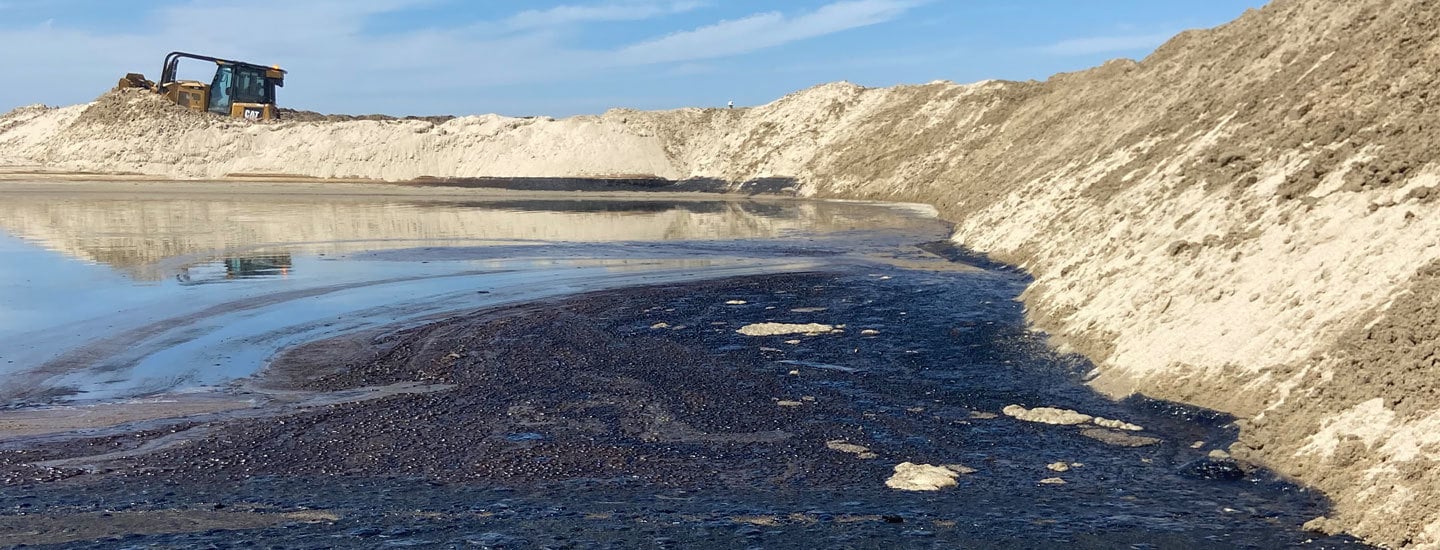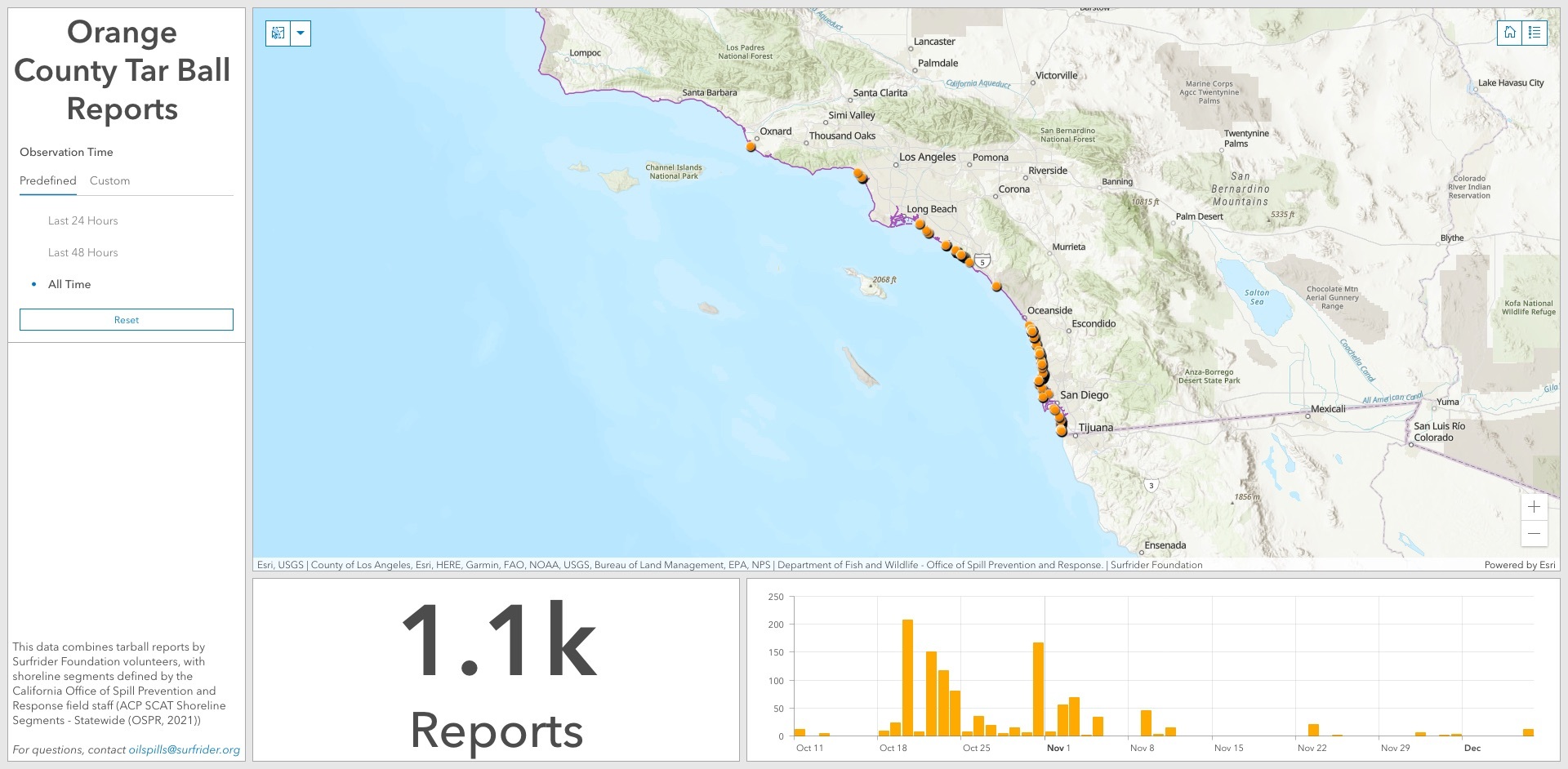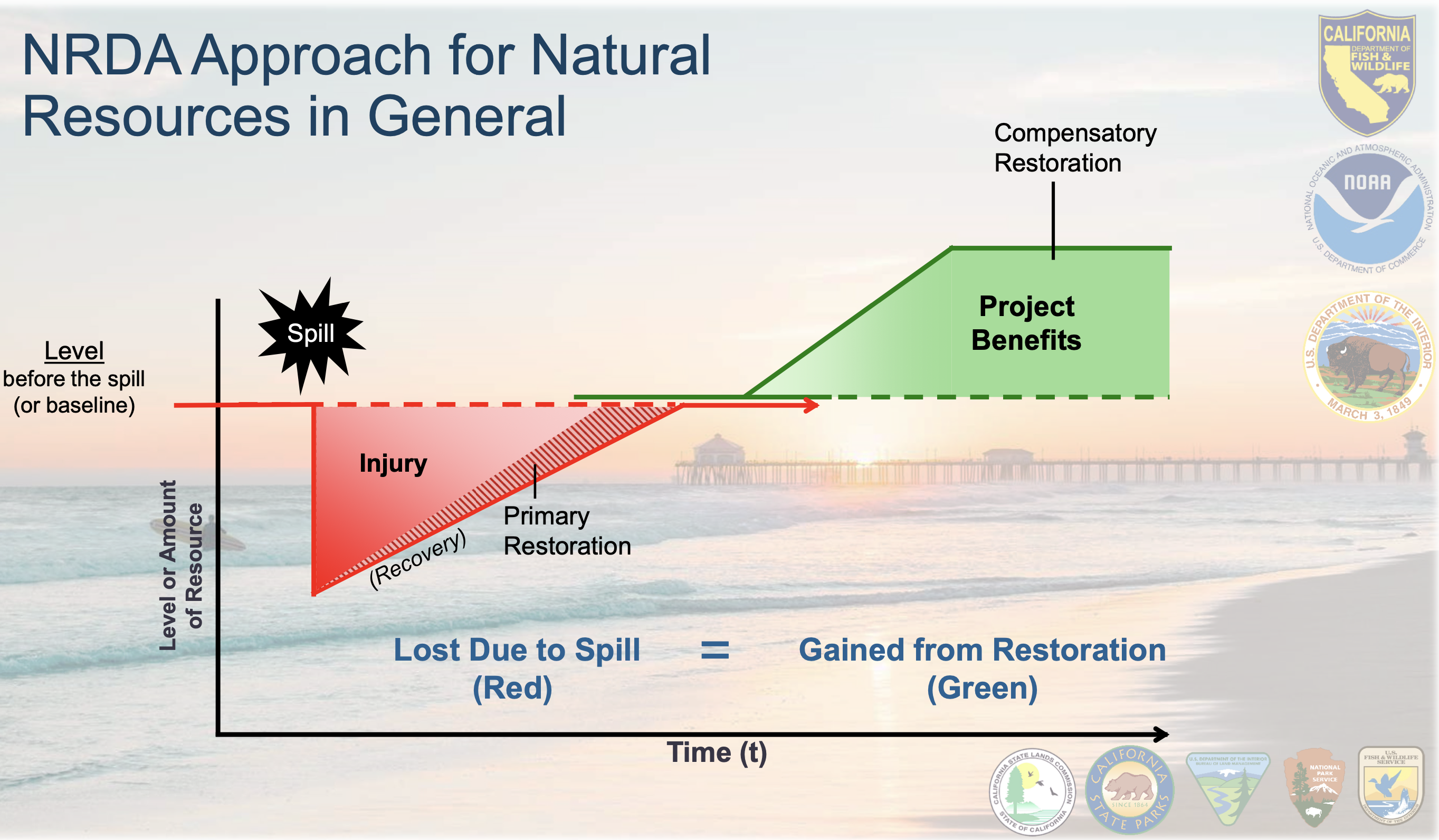
Surfrider is providing input on an environmental restoration plan to address harm from the 2021 oil spill. We will hold Amplify Energy accountable for implementation.
The oil spill came without warning in the late evening of October 1, 2021. By morning, the toxic smell on the beach was palpable as crude oil hit the coasts of Huntington Beach and Newport Beach, California. In total, the Amplify Energy Oil Spill released an estimated 24,696 gallons of oil into the ocean following the rupture of an offshore drilling pipeline approximately 4 ½ miles from shore.
The 13 square mile oil slick wreaked havoc on the ocean and coastal environment in the following days and weeks, harming marine life, damaging sensitive habitats and impacting Indigenous culturally significant places as the pollution made its way south. The oil spill also caused significant harm to local communities and businesses through extended beach and fishery closures and disruption to southern California’s tourism-based economy.
In the wake of this disaster, an inspired cleanup response was marshaled by government agencies, cleanup professionals and volunteers. Led by the U.S. Coast Guard and the California Department of Fish & Wildlife, the cleanup removed thousands of pounds of oil from the environment. Surfrider was proud to support the cleanup by serving as the NGO Liaison to Unified Command. Surfrider also developed a smartphone app that safely engaged thousands of volunteers in providing data on oil pollution on the beach.

Surfrider's smartphone app allowed the public to easily report oil pollution on the beach
Yet, despite the official completion of the cleanup in December, 2021, the work to address the harm from the Amplify Energy oil spill is far from done. Under the Oil Pollution Act, the responsible party is required to “make the public whole again” through a Natural Resources Damage Assessment process. In practice, this means that Amplify Energy is responsible for funding an environmental restoration plan that will address the wide range of harm done to natural resources and the public.
On January 25, government agencies officially launched the Natural Resources Damage Assessment (NRDA) process for the Amplify Energy Oil Spill off Southern California. The public meeting reported on progress the agencies have made in Phase I (assessment of damages) and how the public can provide input moving forward. The meeting also detailed next steps for the NRDA process, including the expected release of a draft environmental restoration plan in early 2024, along with the launch of an official public comment period.
Based on NRDA agency preliminary findings, the oil spill caused a wide range of environmental and community impacts. During the public meeting, agency scientists described harm done to the following resource categories: birds, marine mammals, fish, subtidal and water column, sandy beaches, rocky intertidal, marshes, and human uses. The agency representatives also summarized the next steps for developing an environmental restoration plan and encouraged interested members of the public to submit restoration project ideas. To access the slide presentations from the public meeting click here.

Since the oil spill was first reported, Surfrider Foundation has actively engaged with government agencies and elected officials to support the cleanup response and ensure that Amplify Energy is held accountable for the harm that was caused. In 2022, Surfrider submitted a comment letter of recommendations to the NRDA trustee agencies to inform the development of the draft environmental restoration plan. We have also submitted specific coastal restoration project ideas to the NRDA trustee agencies for consideration in the draft restoration plan.
The NRDA trustee agencies will continue to accept environmental restoration project ideas through the summer and perhaps longer. To submit a project idea, visit the NOAA NRDA website for more information and send via email to: fw8cfwocomments@fws.gov with subject line “P00547 NRDA Project Proposal”. In project proposals, agency staff request that the public identify specific project benefits to harmed resources (e.g. birds, sand beaches, recreation, etc.).
Learn More
Amplify Energy Oil Spill Response website
